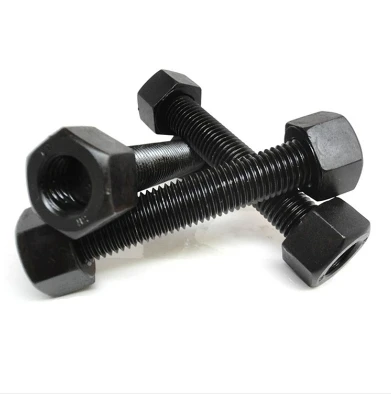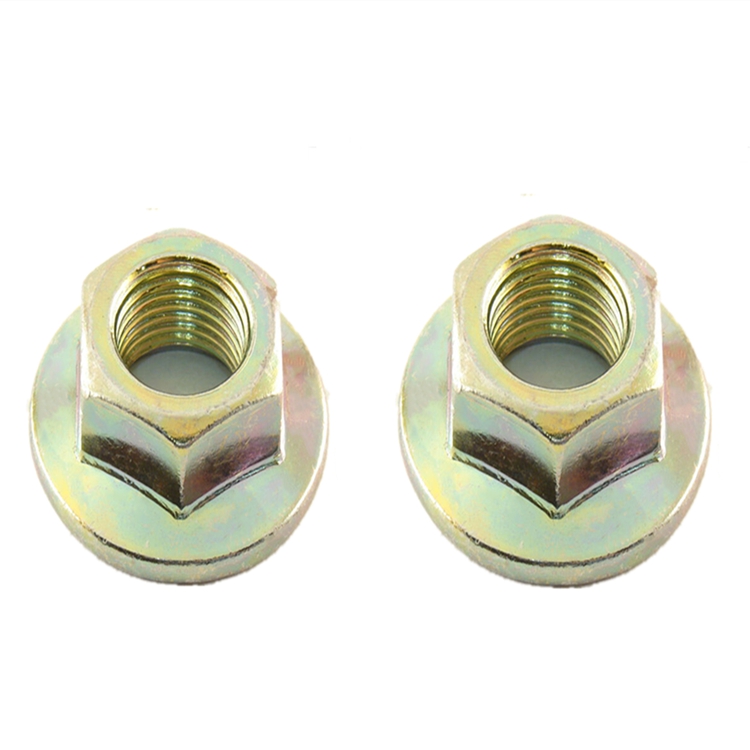coated bolts
Vas . 18, 2025 06:08 Back to list
coated bolts
Coated bolts are pivotal components in numerous industries, ranging from construction to automotive sectors. Their primary function extends beyond mere fastening; they are engineered to enhance durability and resistance to various environmental factors. This article delves into the true essence of coated bolts by focusing on real-world applications, technological advancements, and expert insights, offering readers a comprehensive understanding grounded in experience, expertise, authoritativeness, and trustworthiness.
The automotive industry provides another compelling case for the application of coated bolts. In vehicles, where components are continuously subjected to extreme temperatures and mechanical vibrations, the role of these bolts is critical. High-performance cars, for instance, leverage Teflon-coated bolts due to their superior heat resistance and lubrication properties. This not only enhances the vehicle's performance but also extends the service life of crucial components, proving vital in high-stress environments like racing. In recent years, sustainability has become an integral factor in the manufacturing and selection process of coated bolts. Eco-friendly coatings, which minimize environmental impact during production and disposal, are gaining traction. Innovations like biodegradable coatings are under research and have shown promising results in pilot projects. These developments not only reduce the carbon footprint but also align with the growing global emphasis on sustainability. When considering the installation of coated bolts, practical knowledge plays a vital role. Techniques such as torque adjustment need careful attention, as coatings can affect friction levels and thereby impact the required torque for secure fastening. Experienced technicians understand that over-tightening can compromise the coating, reducing its protective qualities. Proper training and handling techniques are essential to maximize the benefits offered by these advanced coatings. In conclusion, coated bolts represent a sophisticated fusion of material science and engineering expertise, integral for projects demanding durability and reliability. Through a combination of practical experience, adherence to authoritative standards, and ongoing sustainability innovations, these components continue to redefine resilience in demanding conditions. As industries push the boundaries of performance, coated bolts stand as a testament to technological advancement, driven by the unwavering principles of quality and trust.


The automotive industry provides another compelling case for the application of coated bolts. In vehicles, where components are continuously subjected to extreme temperatures and mechanical vibrations, the role of these bolts is critical. High-performance cars, for instance, leverage Teflon-coated bolts due to their superior heat resistance and lubrication properties. This not only enhances the vehicle's performance but also extends the service life of crucial components, proving vital in high-stress environments like racing. In recent years, sustainability has become an integral factor in the manufacturing and selection process of coated bolts. Eco-friendly coatings, which minimize environmental impact during production and disposal, are gaining traction. Innovations like biodegradable coatings are under research and have shown promising results in pilot projects. These developments not only reduce the carbon footprint but also align with the growing global emphasis on sustainability. When considering the installation of coated bolts, practical knowledge plays a vital role. Techniques such as torque adjustment need careful attention, as coatings can affect friction levels and thereby impact the required torque for secure fastening. Experienced technicians understand that over-tightening can compromise the coating, reducing its protective qualities. Proper training and handling techniques are essential to maximize the benefits offered by these advanced coatings. In conclusion, coated bolts represent a sophisticated fusion of material science and engineering expertise, integral for projects demanding durability and reliability. Through a combination of practical experience, adherence to authoritative standards, and ongoing sustainability innovations, these components continue to redefine resilience in demanding conditions. As industries push the boundaries of performance, coated bolts stand as a testament to technological advancement, driven by the unwavering principles of quality and trust.
Next:
Latest news
-
Top Metric Wood Screw Companies | Durable & Reliable
NewsAug.01,2025
-
Premium Lawn Mower Handle Bolts Supplier | Fast Delivery
NewsJul.31,2025
-
Premium Silver Screws Supplier | High-Conductivity Fasteners
NewsJul.31,2025
-
Silver Screws Supplier: High-Quality Fasteners for Various Industries
NewsJul.30,2025
-
Top Spike Wheel Nuts Supplier - High Quality & Custom Options Available
NewsJul.29,2025
-
Top Wire Bolts Suppliers & Manufacturers – Quality Fasteners Factory
NewsJul.29,2025
